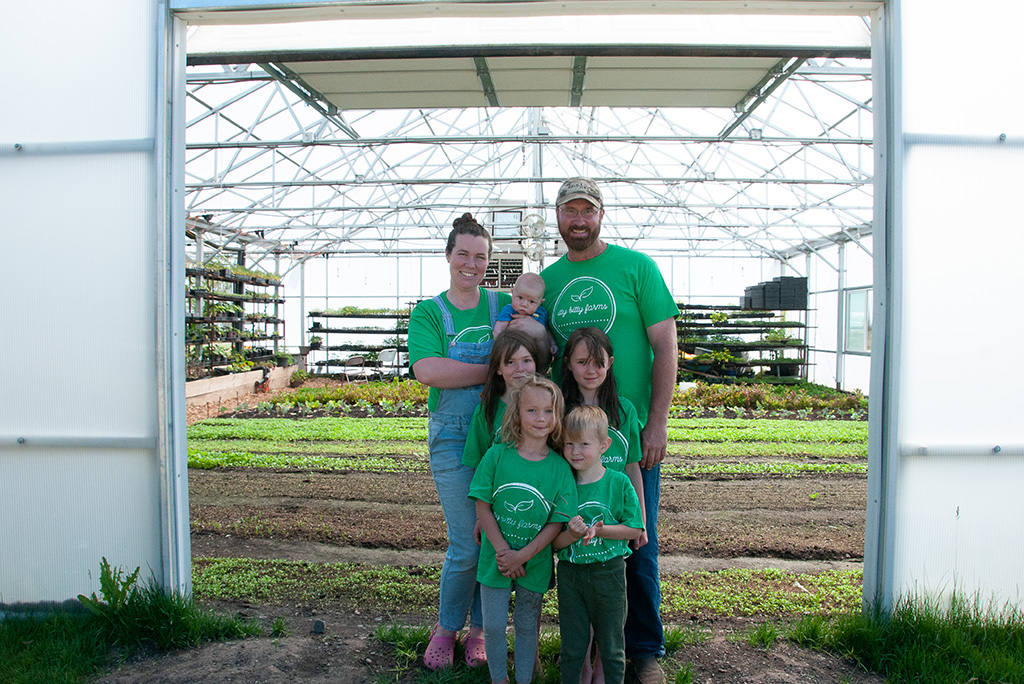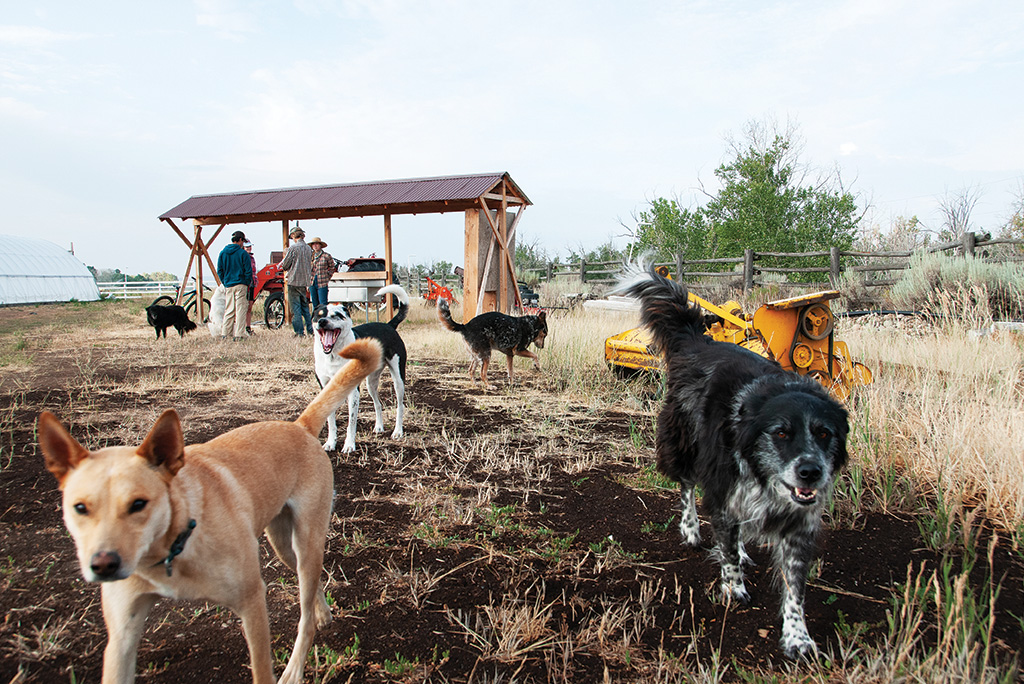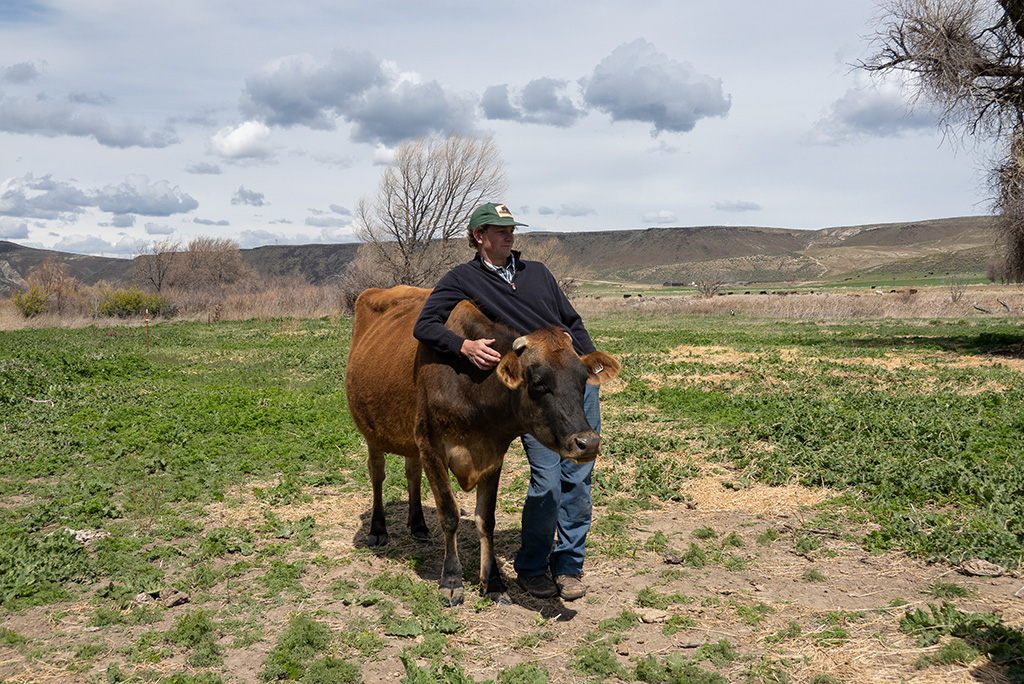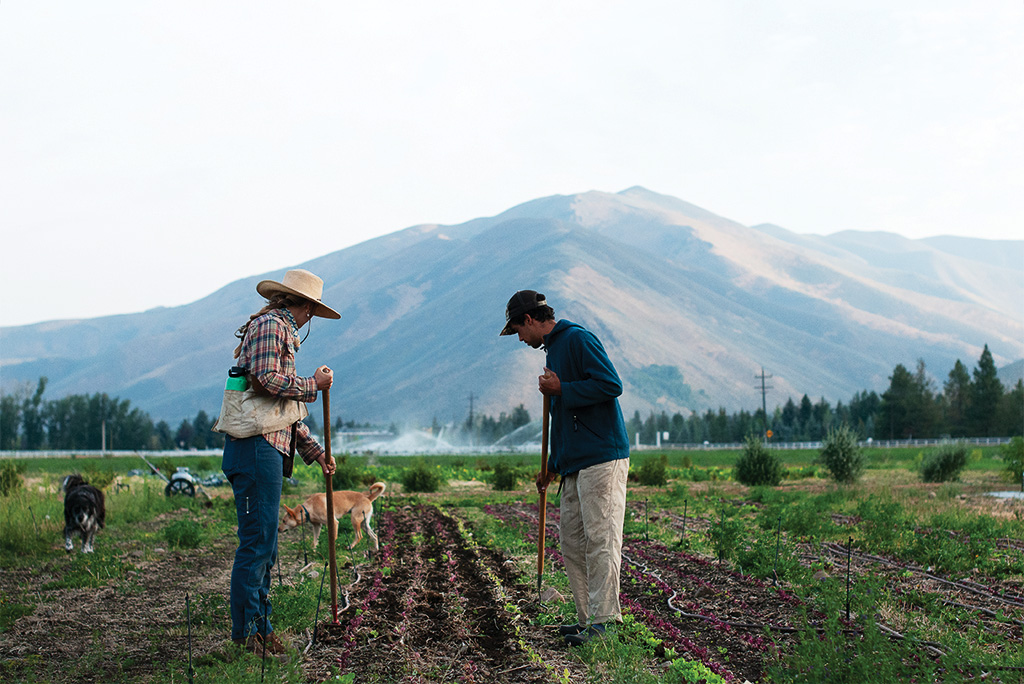The Sun Valley Institute for Resilience has been raising awareness about the importance of regional food systems through the Local Food Alliance since 2016. Early last year, the Institute launched the Impact Idaho Fund as a tool to take regional food systems to the next level.
“Local food systems touch every area of our economy,” says Amy Mattias, Program Director for the Institute. “With the Fund, we reach beyond the farmer/buyer connection and invest in projects that cross the boundaries of impact, addressing food, water, land, energy, and community at once.” In the food sector, this means providing capital to strengthen and shorten the food supply chain, increase opportunities for farming families and regenerate natural resources.
“When a borrower repays their recoverable grant, funds are recycled. With the same donor dollars, we can help multiple resilience projects,” says Amy. “We also provide technical support, setting businesses up for success, whether or not their project is funded.”
To date, funds have been deployed to Itty Bitty Farms, Lookout Farm and Wild Spaces Farm, who all serve the Wood River Valley region.
Itty Bitty Farms

Emily and Landon Knowles with their family.
At the Itty Bitty Farms store, the freezer is stocked with locally raised meats and fish. The fridge holds local dairy products and eggs. Shelves hold snacks and pantry staples alongside Itty Bitty Farms own baked goods. With a door directly into their solar heated greenhouse, there is almost always freshly grown micro-greens and other produce available too.
Emily and Landon Knowles started Itty Bitty Farms in 2017, just one year after Adamsons, the only grocery store in Carey, closed its doors. Five years later, Itty Bitty Farms is an essential agricultural and business anchor for Carey.
Itty Bitty Farms received one of the first investments from the Impact Idaho Fund. With the funds, they increased production space, enhanced on-farm efficiency and purchased a freezer for their store. The Impact Idaho Fund investment set the stage for Itty Bitty Farms to increase their production of high value market crops while keeping fresh produce affordable and easily accessible to their neighbors.
“People are telling us how glad they are that they can get local, affordable, high-quality food right in town,” says Emily.
Lookout Farm

Last summer, the Big Wood River south of Bellevue stopped flowing. Just up the hill from the dry riverbed, Lookout Farm was working hard to cut water usage and create a model for field transition that could be used by other area farmers.
Owners Briana Swette and Simon Neely started working on transitioning two acres of Lookout Farm from animal forage crop production to vegetable crops early in 2021 with investment from the Impact Idaho Fund. Their process utilizes regenerative agriculture practices, including minimal soil disturbance and cover cropping. On average, vegetable production uses 2.5 times less water per week than hay production.
The return on the investment from the Fund is not just the water savings. The added acreage has allowed Lookout Farm to increase the health of their entire operation by providing the space and time to plant cover crops and rest portions of their older fields. “The capital from the Impact Idaho Fund has allowed us to invest in the long-term sustainability of the farm, while also increasing our total production,” says Neely.
Wild Spaces Farm

Wilder Jones of Wild Spaces Farm
Wilder Jones, the owner of Wild Spaces Farm in Glenns Ferry, is looking to be a model for the recovery of the community milk producer. He launched his grass-fed, organic micro-dairy this past January to produce raw and minimally pasteurized products for southern Idaho communities. Small scale dairies have a smaller footprint, use less energy in processing and refrigeration and can incorporate waste back into the farm, according to Jones. Not only is he creating a model for the micro-dairy of the future, he is filling the gap created when southern Idaho lost raw milk producer, Old Almo Creamery, in 2021.
The investment made by the Impact Idaho Fund allowed Wild Spaces Farm to purchase infrastructure and equipment and cover operating expenses during the start-up phase. The micro-dairy is now selling their products at the Boise and Ketchum Farmers markets.
For Jones, the Impact Idaho Fund investment was more than just financial capital. “I think I have an MBA now just from working through the process. As I launch the dairy, it is incredibly valuable to be part of a team and not feel like I have to go at it alone.”
The Impact Idaho Fund has identified and funded these projects because they create interconnections within our region and have positive impacts across food, water, land, energy, and community. As the Fund expands, the investment criteria will ensure that future projects continue to cross these boundaries, building resilience within multiple sectors of the community.
The Impact Idaho Fund is currently accepting applications for funding. The investment capital for the Fund comes through charitable contributions and recoverable grants. For more information and to get involved, visit impactidahofund.org.


